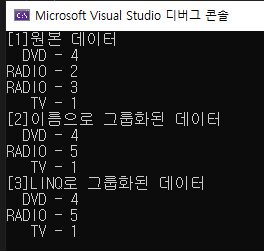https://www.youtube.com/watch?v=dUr_YVBUZP0&list=PLO56HZSjrPTB4NxAsEP8HRk6YKBDLbp7m&index=51
1. 알고리즘
- 초급
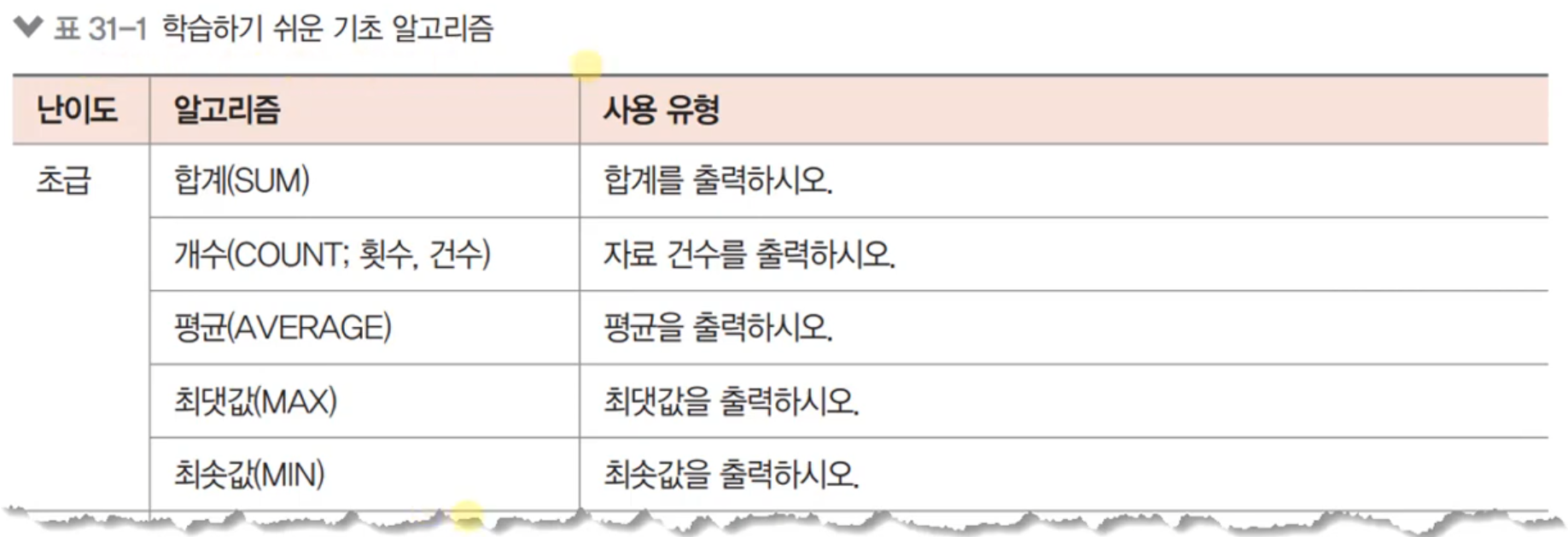
- 중급
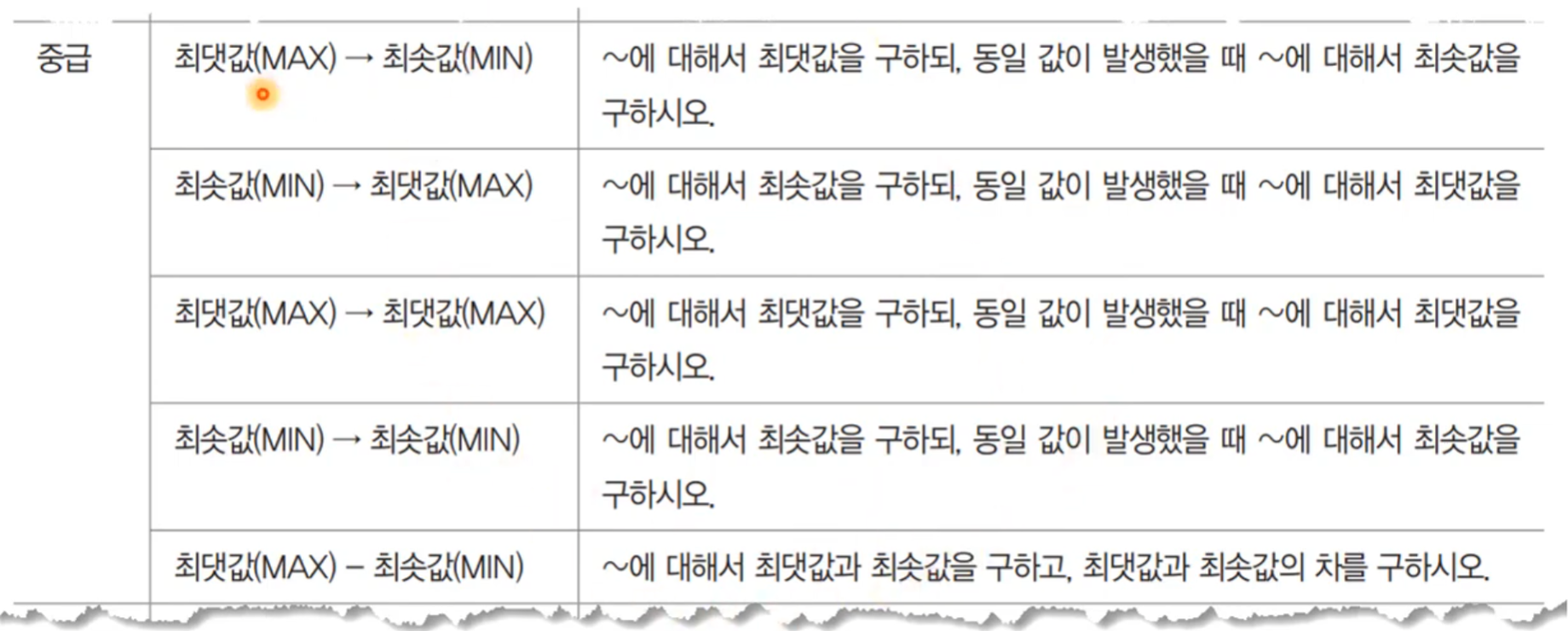
- 고급
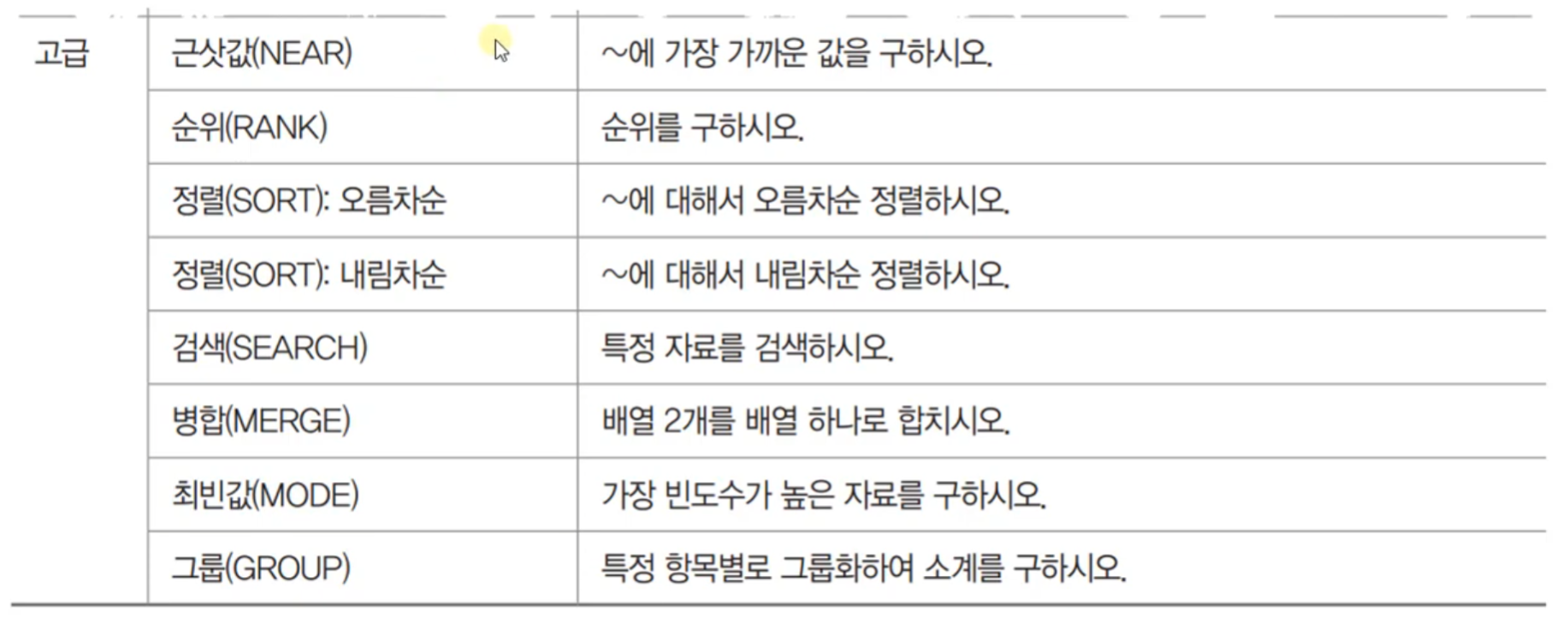
// [1] Input, 자료구조
// [2] Process, 알고리즘
// [3] Output, 결과_1. desc
using System;
using static System.Console;
using System.Collections;
using System.Collections.Generic;
using System.Linq;
namespace testProject
{
class Program
{
static void Main(string[] args)
{
int[] datas = { 3, 2, 1, 5, 4 };
/*
foreach (int data in datas)
WriteLine(data);
*/
for(int i = 0; i < datas.Length; i++)
{
for(int j = i + 1; j < datas.Length; j++)
{
if(datas[i] < datas[j])
{
int temp = datas[i];
datas[i] = datas[j];
datas[j] = temp;
}
}
}
foreach (int data in datas)
Write(data);
}
}
}
2. 합계 알고리즘(SumAlgorithm)
- 6명의 점수 중 80점이 이상의 총점
using System;
using static System.Console;
using System.Collections;
using System.Collections.Generic;
using System.Linq;
namespace testProject
{
class Program
{
static void Main(string[] args)
{
// [1] Input, 자료구조
// n명의 국어 점수
int[] score = { 100, 75, 50, 37, 90, 95};
int sum = 0;
// [2] Process, 알고리즘
// LINQ 사용(식)
// sum = score.Where(s => s >= 80).Sum();
// 합계 알고리즘 영역 : 주어진 범위에 주어진 조건(문)
for (int i = 0; i < score.Length; i++)
{
if (score[i] >= 80) sum += score[i];
}
// [3] Output, 결과
WriteLine($"{score.Length}명의 점수 중 80 점 이상의 총점 : {sum}");
}
}
}
3. 갯수 알고리즘(CountAlgorithm)
- 1부터 1000까지의 정수 중 13의 배수의 개수
using System;
using static System.Console;
using System.Collections;
using System.Collections.Generic;
using System.Linq;
namespace testProject
{
class Program
{
static void Main(string[] args)
{
// [1] Input
int[] numbers = Enumerable.Range(1, 1_000).ToArray();
int count = 0;
// [2] Process
// LINQ
// count = numbers.Count(n => n % 13 == 0);
for(int i = 0; i <= numbers.Length; i++)
{
if (numbers[i] % 13 == 0) count++;
}
// [3] Output
WriteLine($"1부터 1,000까지의 정수 중 13의 배수의 개수 : {count}");
}
}
}
4. 평균 알고리즘(AverageAlgorithm)
- n명의 점수 중에서 80점 이상 95점 이하인 점수의 평균
using System;
using static System.Console;
using System.Collections;
using System.Collections.Generic;
using System.Linq;
namespace testProject
{
class Program
{
static void Main(string[] args)
{
// [1] Input
int[] score = { 90, 65, 78, 50, 95 };
int count = 0, sum = 0;
// [2] Process
// LINQ
// average = score.Where(n => n >= 80 && n <= 95).Average();
for(int i = 0; i < score.Length; i++)
{
if(score[i] >= 80 && score[i] <= 95)
{
sum += score[i];
count++;
}
}
double average = sum / (double)count; ;
// [3] Output
WriteLine($"{score.Length}명의 점수 중에서 80점 이상 95점 이하인 점수의 평균 : {average}");
}
}
}
5. 최댓값 알고리즘(MaxAlgorithm)
- 주어진 값 중 가장 큰 값
using System;
using static System.Console;
using System.Collections;
using System.Collections.Generic;
using System.Linq;
namespace testProject
{
class Program
{
static void Main(string[] args)
{
// [1] Initalizie
int max = int.MinValue;
// [2] Input
int[] numbers = { -2, -5, -3, -7, -1 };
// [3] Process
// LINQ
// max = numbers.Max();
for(int i = 0; i < numbers.Length; i++)
{
if (numbers[i] > max) max = numbers[i];
}
// [4] Output
WriteLine($"최댓값 : {max}");
}
}
}
6. 최솟값 알고리즘(MinAlgorithm)
- 주어진 값 중 가장 작은 값
using System;
using static System.Console;
using System.Collections;
using System.Collections.Generic;
using System.Linq;
namespace testProject
{
class Program
{
static void Main(string[] args)
{
// [1] Initalizie
int min = int.MaxValue;
// [2] Input
int[] numbers = { -2, -5, -3, -7, -1 };
// [3] Process
// LINQ
// min = numbers.Min();
for (int i = 0; i < numbers.Length; i++)
{
if (numbers[i] < min) min = numbers[i];
}
// [4] Output
WriteLine($"최솟값 : {min}");
}
}
}
7. 근삿값 알고리즘(NearAlgorithm)
- 가까운 값(차잇값의 절댓값의 최솟값)
using System;
using static System.Console;
using System.Collections;
using System.Collections.Generic;
using System.Linq;
namespace testProject
{
class Program
{
static void Main(string[] args)
{
// [0] 절댓값 구하기 로컬 함수 : Math.Abs() 함수와 동일한 기능 구현
int Abs(int number) => (number < 0) ? -number : number;
// [1] Initalizie
int min = int.MaxValue; // 차잇값의 절댓값의 최솟값이 담긴 그릇
// [2] Input
int[] numbers = { 10, 20, 30, 27, 17 };
int target = 25;
int closest = 0; // 가까운 값
// [3] Process
// LINQ
// 차잇값의 최솟값
// min = numbers.Min(m => Math.Abs(m - target));
// 근삿값
// closest = numbers.First(n => Math.Abs(n - target) == minimum);
for (int i = 0; i < numbers.Length; i++)
{
int abs = Abs(numbers[i] - target); // 차잇값의 절대값
if(abs < min)
{
min = abs;
closest = numbers[i];
}
}
// [4] Output
WriteLine($"{target}와 가장 가까운 값 : {closest}(차이 : {min})");
}
}
}
8. 순위 알고리즘(RankAlgorithm)
- 주어진(지정한 범위) 데이터의 순위를 구하는 로직
using System;
using static System.Console;
using System.Collections;
using System.Collections.Generic;
using System.Linq;
namespace testProject
{
class Program
{
static void Main(string[] args)
{
// [1] Input
int[] scores = { 90, 87, 100, 95, 80 };
int[] ranks = Enumerable.Repeat(1, scores.Length).ToArray();
// [2] Process
// LINQ
// ranks = scores.Select(s => scores.Where(ss => ss > s).Count() + 1).ToArray();
for(int i = 0; i < scores.Length; i++)
{
for (int j = 0; j < scores.Length; j++)
{
if (scores[i] < scores[j]) ranks[i]++;
}
}
// [3] Output
for (int i = 0; i < ranks.Length; i++)
{
WriteLine($"{scores[i], 3}점 : {ranks[i]}등");
}
}
}
}
10. 정렬 알고리즘(SortAlgorithm)
- Selection Sort(선택 정렬) 알고리즘
- 무작위 데이터를 순서대로 [오름차순|내림차순] 정렬
using System;
using static System.Console;
using System.Collections;
using System.Collections.Generic;
using System.Linq;
namespace testProject
{
class Program
{
static void Main(string[] args)
{
// [1] Input
int[] datas = { 3, 2, 1, 4, 5 };
int N = datas.Length; // 의사코드(슈도코드) 형태로 알고리즘을 표현하기 위함
// [2] Process
// LINQ
for(int i = 0; i < N; i++)
{
for(int j = i+1; j < N; j++)
{
if(datas[i] > datas[j])
{
int temp = datas[i];
datas[i] = datas[j];
datas[j] = temp;
}
}
}
// [3] Output
// Array.Sort(datas);
Write("오름차순 : ");
for (int i = 0; i < datas.Length; i++)
{
Write($"{datas[i]}, ");
}
WriteLine();
for (int i = 0; i < N; i++)
{
for (int j = i + 1; j < N; j++)
{
if (datas[i] < datas[j])
{
int temp = datas[i];
datas[i] = datas[j];
datas[j] = temp;
}
}
}
// Array.Reverse(datas);
Write("내림차순 : ");
for (int i = 0; i < datas.Length; i++)
{
Write($"{datas[i]}, ");
}
}
}
}
11. 검색 알고리즘(SearchAlgorithm)
- 순차 검색, 이진 검색
- 정렬되어 있는 데이터를 이진 검색을 사용하여 반씩 나눠서 검색
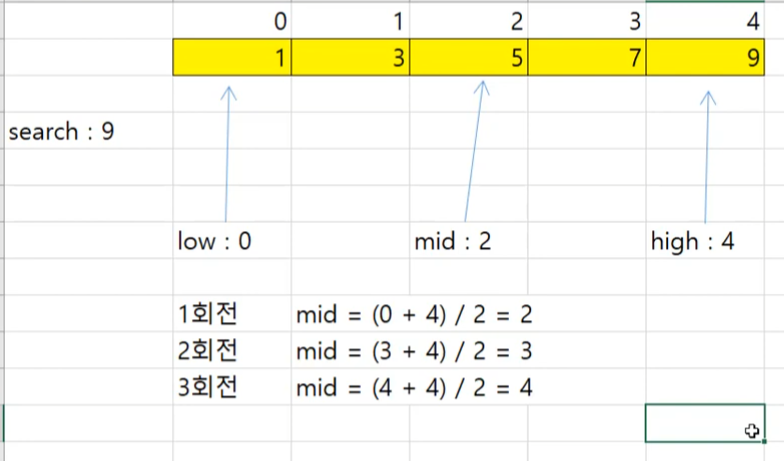
using System;
using static System.Console;
using System.Collections;
using System.Collections.Generic;
using System.Linq;
namespace testProject
{
class Program
{
static void Main(string[] args)
{
// [1] Input
int[] datas = { 1, 3, 5, 7, 9 }; // 오름차순으로 정렬되었다고 가정
int N = datas.Length;
int search = 3;
bool flag = false; // 플래그 변수: 찾으면 true, 찾지 못하면 false
int index = -1;
// [2] Process
int low = 0; // min : 낮은 인덱스
int high = N - 1; // max : 높은 인덱스
while(low <= high)
{
int mid = (low + high) / 2;
if(datas[mid] == search)
{
flag = true;
index = mid;
break;
}else if(datas[mid] > search)
{
high = mid - 1;
}else
{
low = mid + 1;
}
}
// LINQ || lamda
// index = datas.ToList().BinarySearch(search);
// [3] Output
if (flag)
{
WriteLine($"{search}을(를) {index}위치에서 찾았습니다.");
}
else
{
WriteLine($"찾지 못했습니다");
}
}
}
}
12. 병합 알고리즘(MergeAlgorithm, 병합 정렬)
- 오름차순으로 정렬되어 있는 정수 배열을 하나로 병합
- 2개의 정수 배열 합치기, 단 2개의 배열은 오름차순으로 정렬되어 있다고 가정

using System;
using static System.Console;
using System.Collections;
using System.Collections.Generic;
using System.Linq;
namespace testProject
{
class Program
{
static void Main(string[] args)
{
// [1] Input
int[] first = { 1, 3, 5 };
int[] second = { 2, 4 };
int M = first.Length, N = second.Length; // M:N 관행
int[] merge = new int[M + N];
int i = 0, j = 0, k = 0;
// [2] Process
// LINQ || lamda || query expression
// merge = (from o in first select o).Union(from t in second select t).OrderBy(m => m).ToArray();
// merge = first.Union(second).OrderBy(m => m).ToArray();
while(i < M && j < N)
{
if (first[i] < second[j])
{
merge[k++] = first[i++];
}
else
{
merge[k++] = second[j++];
}
}
while(i < M) // first 배열의 데이터를 전부 전달했는지 확인
{
merge[k++] = first[i++];
}
while (j < N) // second 배열읟 ㅔ이터를 전부 전달했는지 확인
{
merge[k++] = second[j++];
}
// [3] Output
foreach (int m in merge)
{
Write($"{m}\t");
}
}
}
}
13. 최빈값 알고리즘(ModeAlgorithm)
- 주어진 데이터에서 가장 많이 나타난 값
- 점수 인덱스(0 ~ n)의 개수(Count)의 최댓값(Max)
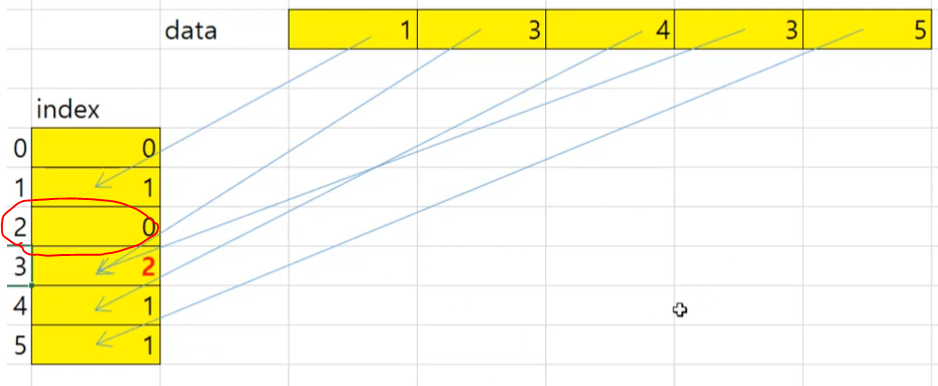
using System;
using static System.Console;
using System.Collections;
using System.Collections.Generic;
using System.Linq;
namespace testProject
{
class Program
{
static void Main(string[] args)
{
// [1] Input
int[] datas = { 1, 3, 4, 3, 5 }; // 0 ~ 5까지만 들어온다고 가정
int[] indexes = new int[6]; // 0 ~ 5까지 점수 인덱스의 갯수
int count = int.MinValue; // MAX 알고리즘 적용
int mode = 0; // 최빈값이 담긴 그룻
// [2] Process
// LINQ || lamda || query expression
// var q = datas.GroupBy(d => d).OrderByDescending(g => g.Count()).First();
// count = q.Count();
// mode = q.Key;
foreach(int d in datas)
{
indexes[d]++;
}
for(int i = 0; i < indexes.Length; i++)
{
if(indexes[i] > count)
{
mode = i;
count = indexes[i];
}
}
// [3] Output
WriteLine($"최빈값 : {mode} - {count}번 나타남");
}
}
}
14. 그룹 알고리즘(GroupAlgorithm)
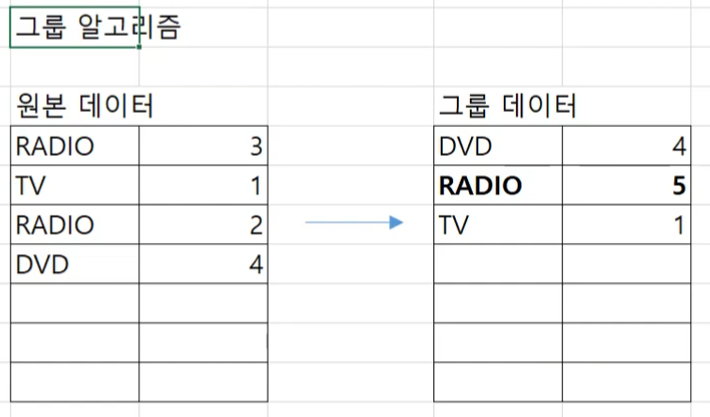
using System;
using static System.Console;
using System.Collections;
using System.Collections.Generic;
using System.Linq;
namespace testProject
{
class Program
{
// Test Class
class Record
{
// 상품명
public string Name { get; set; }
// 수량
public int Quantity { get; set; }
}
static void Main(string[] args)
{
// [0][1]local function, 테스트용 데이터 채우기용
List<Record> GetAll()
{
return new List<Record>
{
new Record{Name = "RADIO", Quantity = 3},
new Record{Name = "TV", Quantity = 1},
new Record{Name = "RADIO", Quantity = 2},
new Record{Name = "DVD", Quantity = 4}
};
}
// [0][2] 컬렉션 데이터 출력용 로컬 함수
void PrintData(string message, List<Record> datas)
{
WriteLine(message);
foreach(Record data in datas)
{
WriteLine($"{data.Name,5} - {data.Quantity}");
}
}
// [1] Input
List<Record> records = GetAll();
List<Record> groups = new List<Record>();
int N = records.Count();
// [2] Process (Sort -> Sum -> Group)
// [Sort] 그룹 정렬
for(int i = 0; i < N - 1; i++)
{
for(int j = i + 1; j < N; j++)
{
if(String.Compare(records[i].Name, records[j].Name) > 0)
{
Record temp = records[i];
records[i] = records[j];
records[j] = temp;
}
}
}
// [Group] 그룹 소계
int subTotal = 0; // 소계를 담을 그릇
for (int i = 0; i < N; i++)
{
subTotal += records[i].Quantity; // [Sum] 합계
if((i + 1) == N || (records[i].Name != records[i+1].Name))
{
groups.Add(new Record { Name = records[i].Name, Quantity = subTotal });
subTotal = 0;
}
}
// LINQ || lamda || query expression
// [3] Output
PrintData("[1]원본 데이터", records);
PrintData("[2]이름으로 그룹화된 데이터", groups);
PrintData("[3]LINQ로 그룹화된 데이터", records.GroupBy(r => r.Name)
.Select(g => new Record { Name = g.Key, Quantity = g.Sum(n => n.Quantity) }).ToList());
}
}
}